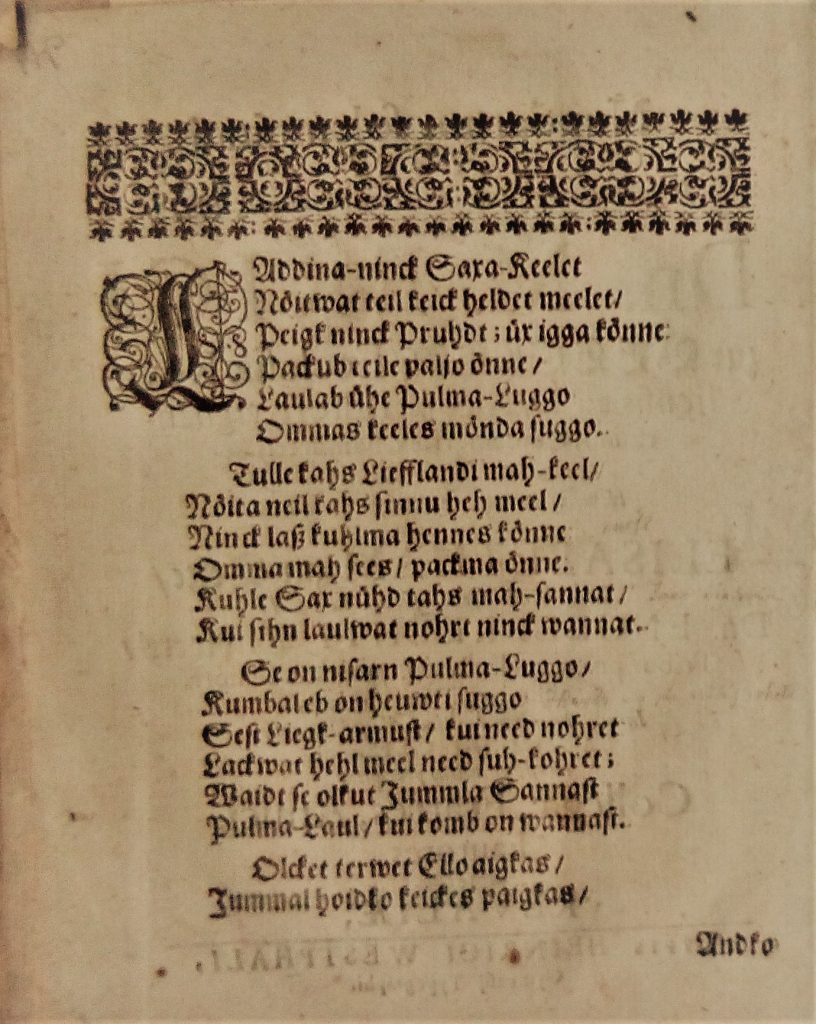Aspects of Multilingualism in the 17th Century
Facetten der Mehrsprachigkeit im 17. Jahrhundert

The 17th century was a tumultuous period in the Baltics in terms of political, denominational and educational developments, also engendering a lot of interest in the linguistic matters of the time. The social significance of each of the languages spoken or otherwise used in the region chiefly depended on the varied interests and ideologies of the actors of the linguistic environment, such as the ruling Swedish monarchy, the local Baltic German elite and the Estonian and Latvian peasants. However, within the established hierarchy of languages, one can also note an impact of the traditional schooling in Latin and Greek, of the Low German language still relevant in commerce and of the language contact with Russian and Yiddish.
The seminar “Aspects of Multilingualism in the 17th Century” will bring together and enable exchange among researchers from Germany and Estonia whose academic interests concern the language-related phenomena of the period.
Speakers
- Helmut Glück (Bamberg, Germany): Multilingualism in the 17th-century Europe.
- Mark Häberlein (Bamberg): Nobility, merchant class and multilingualism in the 17th-century Europe.
- Kristi Viiding (Tallinn, Estonia): Multilingual inscriptions in the Estonian churches of the Early Modern period.
- Aivar Põldvee (Tallinn, Estonia): Language in change: Some sociolinguistic aspects of spoken and written Estonian in the 17th century.
- Marin Jänes (Tallinn): Societal and institutional determining factors of multilingualism in the 17th century in the context of church inspection visits.
- Inna Jürjo (Tallinn): Multilingual features in the 17th-century Estonian and Livonian judicial records and inspection visit documents.
- Kaidi Kriisa (Tartu): Some examples of multilingual practices in the academic texts of the Early Modern Academia Dorpatensis (1632–1710).
- Anna Verschik (Tallinn): Language contacts with Yiddish and Baltic German.
- Szilard Tibor Toth (Narva, Estonia): Multilingualism in the 17th-century Estonian grammars.
- Aigi Heero (Tallinn): Multilingual features in the “Annotations” (ca. 1650–1658) by the Reval (Tallinn) cantor David Gallus.
This event is organised in cooperation with the Tallinn University and the Under and Tuglas Literature Centre of the Estonian Academy of Sciences and is also part of the “German Spring 2019” taking place in Estonia.
